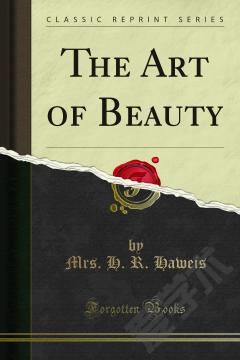Meaning of Beauty
Beauty, let us say, is a recognisable quality; yet each person would draw up a different list of beautiful objects and give them different æsthetic indices. All that can be agreed upon is the nature of each man's reaction to his own list. In each case the sensation is not merely pleasurable, but pleasurable in the same way, and the sensation produced by objects at the top of the list is an intense one. A's list may be headed by the Sistine Madonna, while B's starts with the Blue Danube waltz - objects so dissimilar that no scientific method could possibly isolate, still less describe, the common factor which A and B would agree to call 'beauty'. And yet the sensations inspired by them have at least the common factors of pleasure and intensity. What kind of pleasure? And why so intense? Reasonable questions surely, yet the philosopher who attempts to answer them is playing a game of chess against desperate odds. Let him screw up his courage to move a single pawn, and he finds himself committed to a battle from which no one has yet emerged victorious. He is engaged - poor soul - in a struggle with his Creator, and his only weapons are words.It is fascinating to watch the play of these doomed philosophers. Their usual method is that of the player who attempts to 'take' his opponent's Queen by substituting one of his own pieces for it. Words are his only substitutes. Here, in one corner, is Croce substituting for 'beauty' the word 'expression' or 'the expression of intuition'. There are the Freudians substituting 'wish fulfilment' or 'sublimation'. Kant and his followers think that 'play' is a serviceable pawn. Herder relies on 'empathy'. To enumerate all the known gambits would be boring. One need only consult a bibliography of æsthetics to realise what endless variations are possible. But one common factor emerges. They are all examining states of mind; they are not looking at beautiful things or listening to beautiful sounds. Their books are seldom illustrated. They are not analysing an inherent quality, but its effect on themselves.There seems to be no valid reason for being more interested in an emotion than in its cause. I received recently a letter from a scientist in which the following sentence occurred - One of the laws of thought ought to be, 'The way in which a phenomenon is manifested depends on the way in which it is observed'.
{{comment.content}}








 京公网安备 11010802027623号
京公网安备 11010802027623号